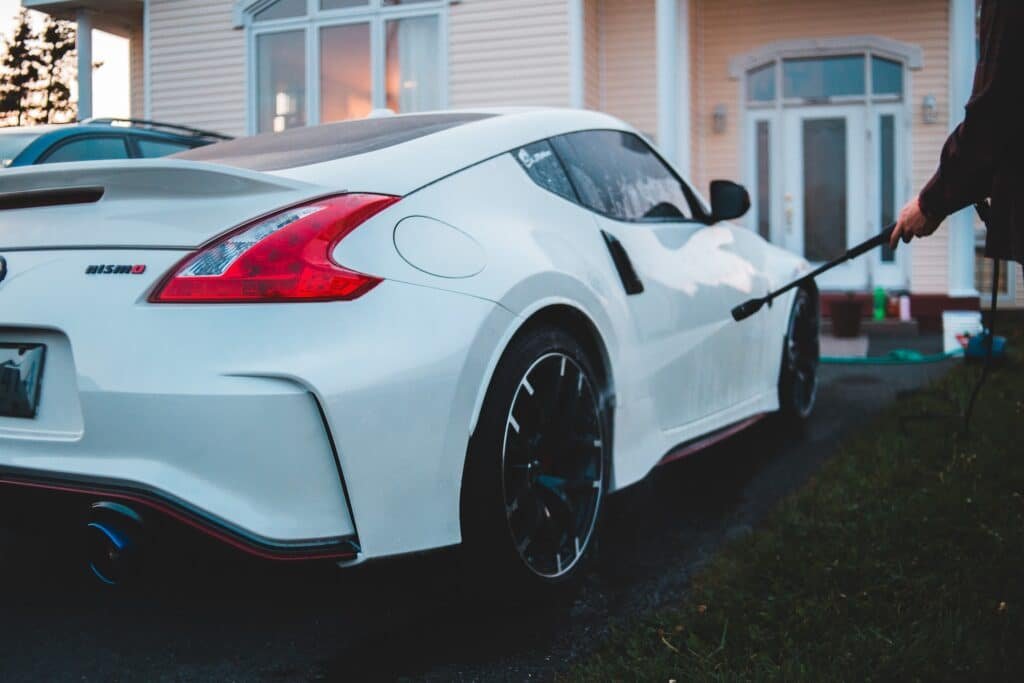
One of the most useful pieces of cleaning equipment is the high-pressure washer in that it is one of the most effective, versatile tools on the market. In terms of cleaning around the home, for instance, it is an excellent tool for cleaning decks or patios. It can help pick apart old paint, and it can obliterate lichen or mildew on concrete.
Additionally, it is good for bricks and grout, and you can use it to clean windows, cars, and tires. If something needs cleaning, there are very few things that a high-pressure washer cannot tackle. That said, it does operate via highly pressurized water, which under a variety of conditions can present a safety hazard.
Eye injuries
You might think that simply because you are aiming the water stream away from your face you are not susceptible to an eye injury. However, when using a washer, a lot of dirt and debris is scrubbed off and flung into the air. To ensure no dirt enters your eyes, you should always wear safety glasses.
Skin tearing
Many people simply do not realize the amount of power a high-pressure washer exudes. At 1,400 to 2,000 pound-force per square inch (PSI), a light-duty pressure washer provides a stream of water that is 30 times more powerful than your garden hose. A heavy-duty washer delivers enough pressure at 2,600 to 4,000 PSI to strip paint off items. However, with this amazing pressure comes the potential for a rather horrifying bodily injury.
For instance, using a pressure washer to move bugs off your skin or wash away dirt from your hands is an extremely dangerous mistake. Doing so can lead to lacerations requiring a trip to the emergency room, a dose of antibiotics, and, in some cases, stitches.
Kickback
The force emanating from a high-pressure washer can be rather startling. In fact, if you are not ready, the pressure can knock you backwards or–worse–knock you down. Extreme caution should be used when operating a washer while on a ladder. The possibility of falling off the ladder due to the kickback is obvious; however, it is important to remember that as you progress through your task and need to move the ladder, you will most likely be placing it on wet ground, increasing the risk associated with this activity. Because of this, it is not recommended that you use a ladder while pressure washing.
Chipping
Due to the High Pressure Washing involved, it is important to be aware of the type of item you are cleaning. For instance, using a high-power washer to clean lichen and dirt off of your deck makes this monotonous job go by relatively quickly and easily. However, you should be sure to continually move the spray across the wood, or you risk removing the stain or paint. In fact, if you are not careful, you may actually end up chipping a hole into the wood.
Electrical shock
Most high-pressure washers have a generous 20- to 30-foot power cord. Although this length of a cord makes manoeuvring a washer rather simple, it also makes the cord vulnerable to cracks and kinks. If the cord has any cracks, it is highly likely that water will find its way inside the cord. Once water enters the cord, there is an extremely high risk of experiencing an electric shock or electrical fire. Because of this safety issue, you should always inspect the cord before each use.
Surroundings
Before operating your high-pressure washer, you should ensure that the surrounding areas is free of any potential hazards. For instance, you should make sure that the cord is placed in such a way that it will not pose a tripping hazard. You should also make sure that pets and children are removed from the area. It is also important to be cognizant of the fact that the area will get wet. Consequently, you should be aware of potentially slippery areas. It is also important to avoid power lines and electrical wires.
Exhaust
Because a gas-powered pressure washer uses a combustion engine, you should never use it in an enclosed space. The exhaust that emanates from a combustion engine is filled with carbon monoxide. If breathed in, this poisonous gas can cause a variety of problematic side effects like headaches and nausea. Prolonged exposure can result in death.
Noise
Pressure washers are loud. For instance, a gas-powered pressure washer emits a similar level of noise as a lawnmower. If you operate one in an enclosed space, the sound will ricochet off the walls amplifying the noise. Although it is clearly important to wear ear protection when using a gas-powered pressure washer, electric pressure washers are also very loud. Ear protection is required for any type of high-pressure washing, so you will not experience hearing loss.
By: Eric Reyes
